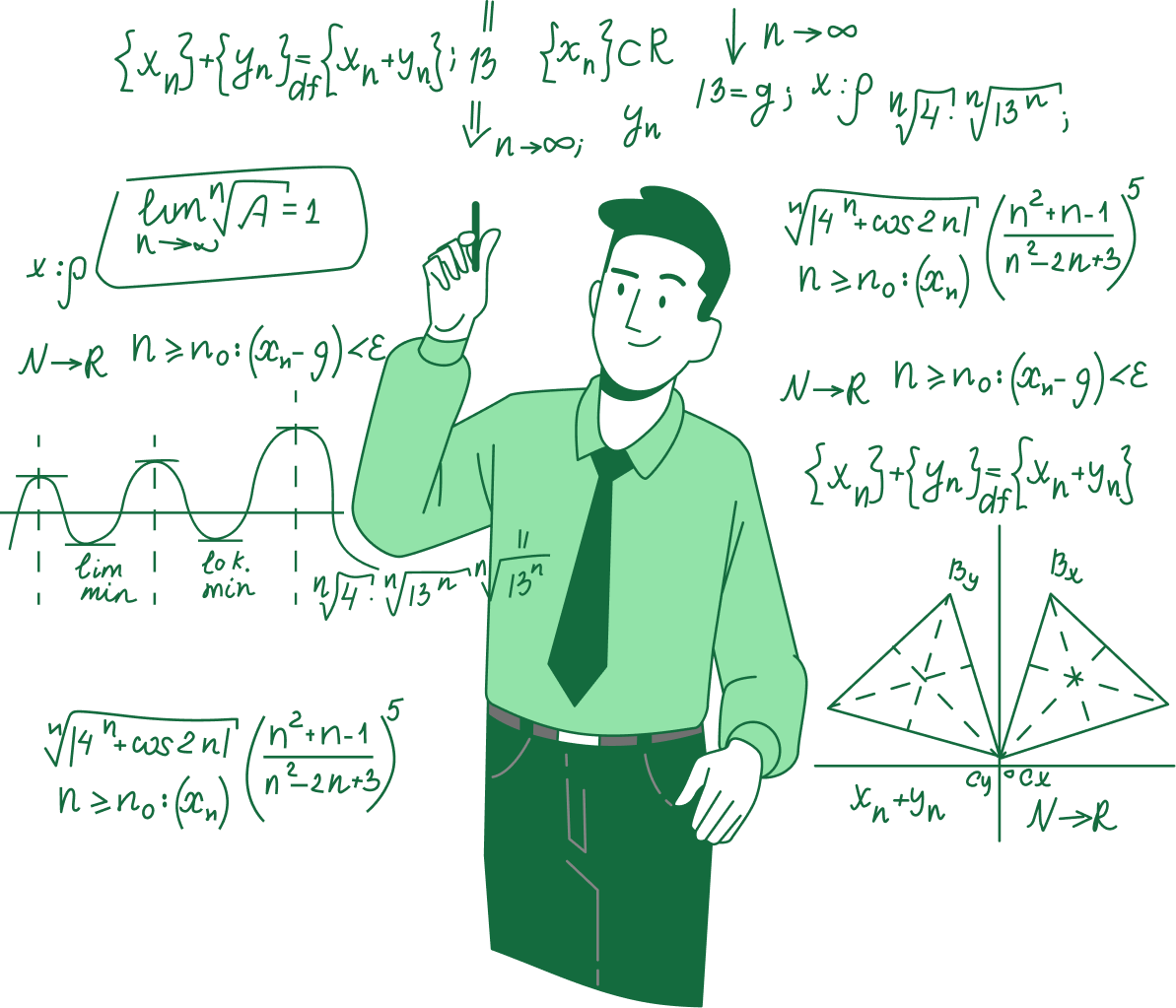Linear Equation in Two Variables- Complete Guide For Class 9 Math Chapter 4
Welcome to iPrep, your Learning Super App. Our learning resources for the chapter, Linear Equation in Two Variables in Mathematics Class 9th chapter 4 are designed to ensure that you grasp this concept with clarity and perfection. Whether you’re studying for an upcoming exam or strengthening your concepts, our engaging animated videos, practice questions and notes offer you the best of integrated learning with interesting explanations and examples.
Chapter 4 of Class 9 Mathematics, “Linear Equations in Two Variables,” introduces students to equations of the form ax + by + c = 0. It covers the representation of these equations graphically, solutions as points on a line, and applications in real-life situations.
Introduction to Linear Equations
as stated in the chapter Linear Equation in two variables, A linear equation in one variable is an equation of the form ax + b = 0, where a and b are real numbers. For example, consider the equation:
3x + 2 = 0
The solution is found by isolating x:
3x = −2
x = −2/3
This equation has one unique solution.
Representation on the Number Line
Let’s consider the equation:
2x + 4 = 8
To solve for x, we simplify:
2x = 4
x = 2
This solution can be represented on the number line, providing a visual understanding of the solution’s position.

Key Points to Remember
- The solution of a linear equation is not altered if:
- The same value is added to both sides.
- The same value is subtracted from both sides.
- Both sides are multiplied or divided by the same value.
- Linear Equations in Two Variables: An equation of the form ax + by + c = 0 (where a,b and c are real numbers and a ≠ 0, b ≠ 0) is known as a linear equation in two variables.
Example:
2x + 3y = 23
Here, a = 2, b = 3, and c = − 23. The equation can be rearranged into its standard form.
Solving Linear Equations
Example: Prove that x = 3 and y = 2 is a solution to the equation:
3x − 2y = 5
Solution: Substitute x = 3 and y = 2:
3(3) − 2(2) = 9 − 4 = 5
Hence, x = 3 and y = 2 is indeed a solution.
Representing Real-World Problems
Example 1: The cost of a pen and twice the cost of a pencil is 146. Represent this situation algebraically.
Solution: Let x be the cost of the pen and y the cost of the pencil:
x + 2y = 146
Example 2: Rahul and Ankur together contributed Rs. 100 for a donation camp. Write a linear equation to represent this.
Solution: Let x and y be the contributions of Rahul and Ankur, respectively:
x + y = 100
Identifying Coefficients
Example: In the equation x/2 + y = 1.76, identify the values of a,b, and c.
Solution: Here, a = 1/2, b=1 and c = −1.7.
Finding Solutions
A linear equation in two variables can have infinite solutions. For example:
Example: Find four solutions for the equation x + y = 4.
Solution:
x y 0 4 1 3 2 2 3 1
Similarly, for the equation 2x + y = 7, we can find:
x y 0 7 1 5 2 3 3 1
Graphical representation of linear equation in two variables
Now that we know very well about the linear equations in two variables for class 9 chapter 4, we will now see how to represent these linear equations with the help of graphs.

Checking Solutions
Example: Determine if the following are solutions for the equation x − 2y = 4:
- (2,4)
- (4,0)
- (−1,1)
Solution:
- (2,4) is not a solution.
- (4,0) is a solution.
- (−1,1) is not a solution.
Special Cases and Graphical Representation
Example: Find m if x = −1 and y = −2 is a solution for 4x − 3y = m.
Solution: Substitute x and y values:
4(−1) − 3(−2) = m
−4 + 6 = m
m = 2
Graphical Representation
Plotting the equation y − x = 2 involves finding points and drawing a line through them. Similarly, x − 2y = 3 and 3x − 2y = 4 are plotted by finding suitable x,y pairs.
The graphical method provides a visual representation of linear equations, showcasing how each equation forms a line on the Cartesian plane. A key aspect is that any line parallel to the x – axis has y = constant and parallel to the y – axis has x = constant.
This chapter serves as a fundamental building block for understanding more complex mathematical concepts and their practical applications. Whether in algebraic or graphical form, mastering linear equations in two variables is crucial for students in Class 9 and beyond.
In conclusion, Chapter 4: Linear Equation in Two Variables is a foundational topic in Class 9 Mathematics. By mastering the concepts covered in this chapter, such as solving equations, representing them graphically, and applying them to real-world situations, students gain critical problem-solving skills. Whether you’re dealing with equations like ax+by+c=0ax + by + c = 0ax+by+c=0 or exploring the infinite solutions of linear equations, this chapter sets the stage for more advanced mathematical learning. The iPrep Learning Super App offers a variety of resources to help you excel in Chapter 4: Linear Equation in Two Variables, ensuring a comprehensive understanding of these essential concepts. Keep practicing, and you’ll soon master the principles of Chapter 4: Linear Equation in Two Variables!
Practice questions on Chapter 4 - Linear Equation in Two Variables
Get your free Chapter 4 - Linear Equation in Two Variables practice quiz of 20+ questions & detailed solutions
Practice Now








